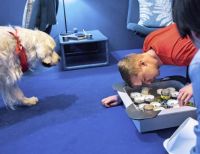A team of researchers at Aalto University’s department of Computer Science is looking to study how life after the coronavirus pandemic — with a return to travelling to offices — will change our daily movement, activity and sleep habits. They want to better understand how we adapt to the post-pandemic life and how long it takes for us to build stable routines again.
“Covid-19 has given us many challenges, but also provides an unprecedented opportunity for understanding our behavioral patterns and how we adapt under challenging circumstances.“ Says Talayeh Aledavood, the lead researcher of this study. Around 120 full-time Aalto employees will receive Polar smart watches for 6-12 months to measure their activities. They get to monitor their activity patterns over time. Participants have to be Aalto University full-time staff members, and employees who already own a Polar fitness tracker can also join the study.
“We often have misconceptions about things like how much we move, or how long we sleep. Using fitness trackers makes it possible to measure the amount and quality of our sleep, physical activity and training sessions more accurately. It also helps us to build healthy habits. This becomes ever so important under current circumstances. The Covid-19 pandemic has created an unprecedented disruption in our lives. Equally disruptive will be the transition to the new 'normal' of post-pandemic life. At what rate will we return to work? How will we adapt? How fast will daily life routines become stable again? These are some of the important questions that we want to answer with this study" says Aledavood.
This study is part of larger research efforts of Aleadvood and her team to quantify and understand behavioral patterns of people using data from smart devices like fitness trackers and smartphones. In the past 5 years, they have been running similar studies with patients with mood disorders. Applying different methods of data science and machine learning helps them find new behavioral markers for these disorders.
For enquiries related to the study or research collaborations, please contact Talayeh Aledavood at [email protected] or 050 563 2634.
If you are interested in signing up, please visit the study website using the link below. The fitness trackers will be distributed while the supply lasts.
















